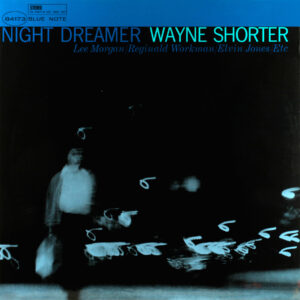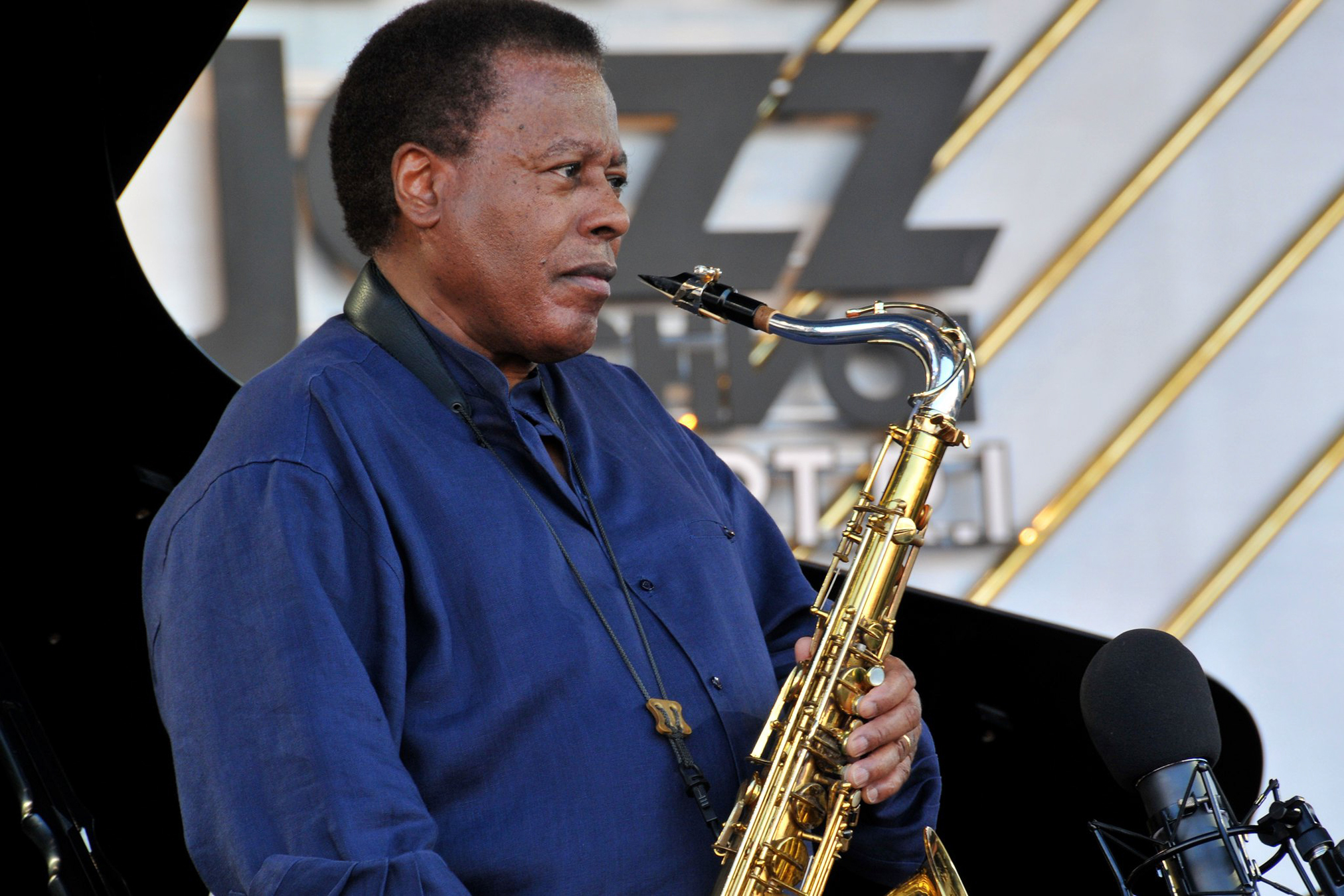Twelve-time GRAMMY-winning composer, conductor, librettist, and jazz saxophonist Wayne Shorter was born on August 25, 1933, in Newark, New Jersey. His parents were Joseph Wayne Shorter, a a welder for the Singer sewing machine company, and Louise Shorter, a seamstress with furriers. They also had an older son Alan Shorter, a trumpeter.
Wayne Shorter graduated from Newark Arts High School in 1952. From grades 10 through 12, he painted while taking private lessons on clarinet, and performing tenor saxophone with the Nat Phipps Band in the city. He then enrolled at New York University. In 1956, Shorter received a Bachelor of Music Education degree from that institution. His principal instrument was the trumpet.
Shorter came to prominence in the late 1950s as a member and composer for Art Blakey’s Jazz Messengers in 1959 and remained with the group until 1963. In 1964, he joined Miles Davis’s Second Great Quintet. Shorter composed “Footprints” in 1966 and “Nefertiti” in 1968. Both pieces have multiple phrasings of the melody and became jazz standards. In 1968, Shorter added the soprano saxophone to his work while on tour with the Mexican guitarist Carlos Humberto Barragán Santana.

In 1970, Shorter left Second Great Quintet to co-found the post-modern jazz fusion band, Weather Report, with pianist Joe Zawinul and Miroslav Vitous. In 1971, he released his debut album, Weather Report. In 1974, while still active with the Weather Report, Shorter connected with the Brazilian troubadour Milton Nascimento to create the album Native Dancer. In 1977, Shorter became the Director of Jazz Performance at New Jersey’s William Paterson University. After the Weather Report disbanded in 1985, Shorter formed the Wayne Shorter Quartet. In 1988, he composed the film score for The Last Emperor which won an Academy Award for Best Original Score.
Shorter received numerous awards and accolades, including being named a National Endowment for the Arts Jazz Master in 1998 and an Honorary Doctorate of Music from the Berklee College of Music in Boston, Massachusetts in 1999. In 2003 he was elected into the DownBeat Hall of Fame. In 2013, Shorter received a Lifetime Achievement Award from the Thelonious Monk Institute of Jazz. The following year he was awarded the Grammy Lifetime Achievement Award. Two years later, in 2016, he received a Guggenheim Fellowship in music composition and was elected to the Ertegun Jazz Hall of Fame. In 2017, Shorter was recognized with the Swedish international award “The Polar Music Prize” and in 2019 he was inducted into the International Society of Jazz Arrangers and Composers Hall of Fame.
Also, in 2019 at 85, Shorter composed and released “Emanon,” a suite. This work comprised using his quartet and featuring the Orpheus Chamber Orchestra, as his soprano saxophone was the principal instrument heard throughout the piece.
Two years afterward, in 2021, Shorter and Esperanza Spalding’s opera, Iphigenia, based on the 2,400-year-old play by the Greek writer Euripides of a young woman sentenced to ritual sacrifice, premiered with the New York Metropolitan Opera.
Shorter had three marriages which produced two children, Miyako Shorter and Iska Shorter.
Wayne Shorter, a Nichiren Buddhist toward the end of his life, who composed more than 200 works, died in Los Angeles, California, on March 2, 2023. He was 89.

